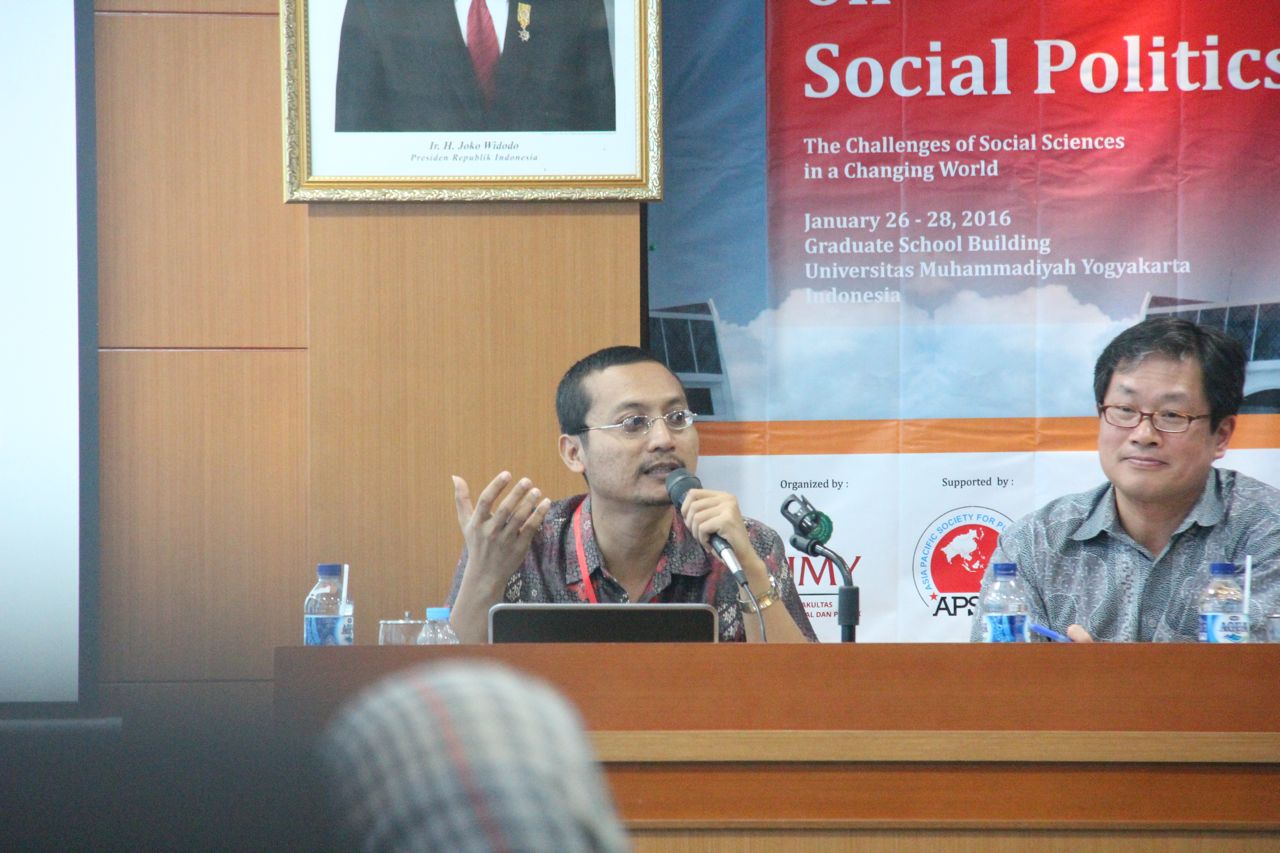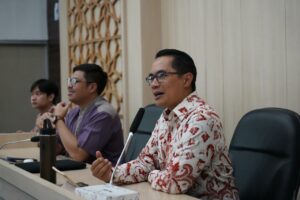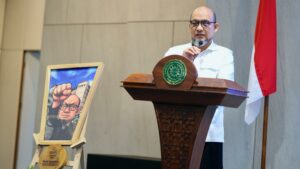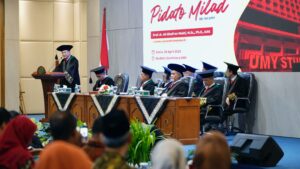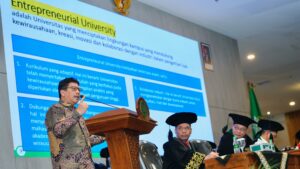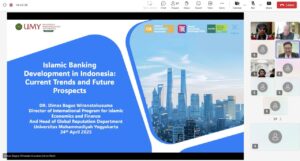Eko Priyo Purnomo, Ph.D., a Governmental Study lecturer of Universitas Muhammadiyah Yogyakarta (UMY), conducted research of forest fire in Sumatera and Kalimantan in 2015. He mentioned public misperception on the fire forest caused by oil palm companies, but local farmers were involved in the forest fire.
In a plenary session of International Conference on Social Politics (ICSP) 2016 on Wednesday (27/1) at meeting hall of Graduate School of UMY, floor 4, Eko as the keynote speaker discussed the extent of the slash and burn activities in Palm industries create the haze problem in Indonesia, how the forest tenure in Indonesia is implemented, and who are the actors involved in the policy of sustainable palm industry.
“Actors of the palm industries are big cooperation, medium cooperation, small cooperation, farmers, small community, and medium community. Each farmer possesses 2-hectar palm area,” Eko mentioned. The small community and medium community have less than 25 hectares that the owner is everyone without any financial guarantees. On the contrary, every owner must have ‘Surat Tanda Daftar Usaha Perkebunan untuk Budidaya’ (STD-B), and many plant-holders have not yet had the STD-B before they plan and occupy land.
Eko presented data that forest fire in Riau was also caused by local farmers. Eko showed that 51% of 3 million hectares or 1.6 million hectares of land in Riau are plantations or oil palm plantations. One of 1.6 million hectares belong to large companies, and 0.6 million hectares belong grower or small-medium-scale agriculturalists,” Eko elucidated.
Forest fire in Indonesia, indeed, involved several actors including local farmers who are supposed to have STD-B. Eko analyzed that the farmers do not possess the STD-B due to the complicated process of bureaucracy of having the ownership permit or so-called bureaucracy inertia. “The bureaucracy inertia is too bureaucratic, not efficient, closed, and often one act,” Eko mentioned.
The other keynote speakers were Sataporn Roengtam from Khon Kaen University and Jin-Wook from Korea University. Sataporn presented ‘Local Power Structure, the ineffectiveness of decentralization in Thailand’, while Jin-Wook Choi discussed ‘Management Public (study case: Public Service Agency of Indonesia)’.
Choi concerned with the issues of the ineffectiveness of Public Service Agency of Indonesia for the ten recent years. He argued that the agency could not enhance the service to public and the efforts to escalate the service are low. “The ineffectiveness was also due to the low of governmental structure, financial management, and performance appraisal,” Choi mentioned.
Choi inserted that the main challenge of Public Service Agency (BLU) of Indonesia is the vagueness of roles and responsibilities of participating entities including Ministry of Finance, line ministries, and Public Service Agencies (PSAs). “The shortage of manpower and capacity of the Directorate of BLU to supervise PSAs should be the concern of government as well,” Choi conveyed. He also explained how the financial management of BLU brings mismanagement of BLU itself.
In the end of Choi’s presentation, he proposed several recommendations for government of Indonesia like providing autonomy with accountability. “It can be undertaken by rebuilding the internal controlling mechanism through which each PSA can audit and monitoring the soundness of its financial management internally,” Choi declared. The other recommendation is by utilizing external controlling mechanisms led by either the Ministry of Financial or other governmental audit agencies.
